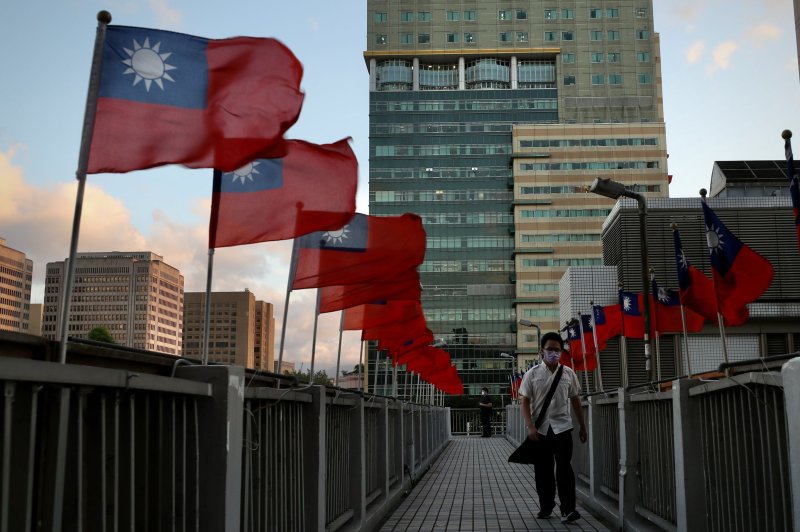1 of 4 | Taiwan lost another diplomatic ally as Nicaragua officially severed relations with Taipei and recognized Beijing's government on Friday. File Photo by Ritchie B. Tongo/EPA-EFE
Dec. 10 (UPI) -- Nicaragua officially ended diplomatic relations with Taiwan, choosing to recognize Beijing's claim as the sole government under its "One China" principle and further isolating Taipei on the international stage.
"The Government of the Republic of Nicaragua declares that it recognizes that in the world there is only one single China," a statement issued Thursday by Nicaragua's Ministry of Foreign Affairs said. "The People's Republic of China is the only legitimate government that represents all of China and Taiwan is an inalienable part of the Chinese territory."
Officials from China and Nicaragua met on Friday in Tianjin to sign a joint communique resuming diplomatic relations, China's foreign ministry said.
China has long considered Taiwan a breakaway province and refuses to have diplomatic ties with any country that officially recognizes Taipei.
Taiwan acknowledged the break with Nicaragua on Friday, which shrinks its diplomatic allies to 14, primarily small states in Central America, the Caribbean and the South Pacific, as well as the Vatican.
The Taiwanese government expressed "extreme regret" at Nicaragua's decision, and slammed China's continuing efforts to poach its diplomatic partners.
"The Taiwan government also strongly condemns the Chinese government for again coercing a diplomatic ally to sever relations with Taiwan and for suppressing Taiwan's diplomatic space," the Foreign Ministry said in a statement.
Taiwanese President Tsai Ing-wen said on Friday that Taipei would not cave under Beijing's efforts to isolate it.
"I would like to stress that no amount of external pressure can shake our commitment to freedom, human rights, the rule of law & partnering with the international democratic community as a force for good," Tsai wrote on Twitter.
Nicaragua's decision came a month after strongman President Daniel Ortega won his fifth term in office via elections that were widely condemned as undemocratic by Western nations and international monitors. U.S. President Joe Biden called the Nov. 7 contests a "pantomime" and a "sham," and Washington later imposed sanctions on several Nicaraguan government officials.
On Thursday evening, State Department spokesman Ned Price criticized Nicaragua's diplomatic switch and again challenged the legitimacy of the Ortega government.
"Without the mandate that comes with a free and fair election, Ortega's actions cannot reflect the will of the Nicaraguan people, who continue to struggle for democracy and the ability to exercise their human rights and fundamental freedoms," Price said in a statement. "We do know, however, that this deprives Nicaragua's people of a steadfast partner in its democratic and economic growth."
The United States is among dozens of countries that maintain unofficial diplomatic relations with Taiwan, and the Biden administration has looked to strengthen defense and economic ties with the democratic island as Washington's competition with Beijing intensifies.
China, meanwhile, has vowed to retake Taiwan by force if necessary. In recent months, Beijing has put on a military show of strength, sending aircraft into Taiwanese airspace on a regular basis and practicing beach landing drills in a nearby province.
China has also ramped up its offers of economic and development aid to siphon off Taiwan's allies under the presidency of Tsai Ing-wen, who has vowed to resist reunification with China. Since Tsai's 2016 election and re-election in 2020, the number of countries officially recognizing Taipei has dropped from 22 to 14.
"We highly commend the right decision made by the Government of Nicaragua, which is in line with the prevailing trend of the time and people's aspiration," Zhang Jun, China's Ambassador to the United Nations, said on Twitter. "The One-China principle is a consensus widely accepted by the international community and allows no challenge."
Nicaragua's move comes as Taiwan's Digital Minister Audrey Tang is set to participate Friday in a panel discussion at Biden's inaugural Summit for Democracy, a virtual event meant to promote democratic ideals and counter authoritarianism. Taiwan's participation has drawn the ire of China, which was not invited.















